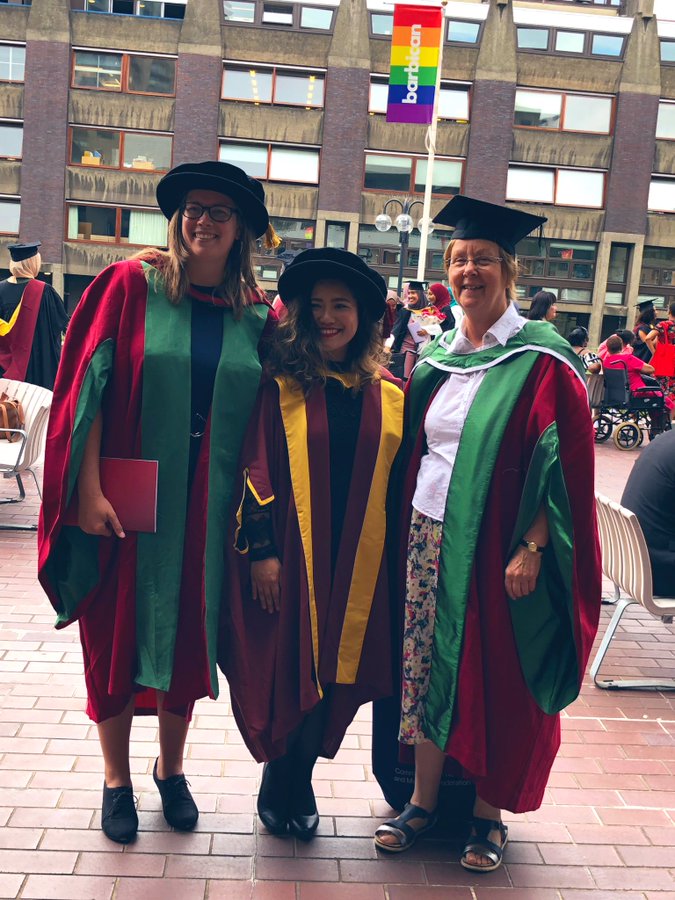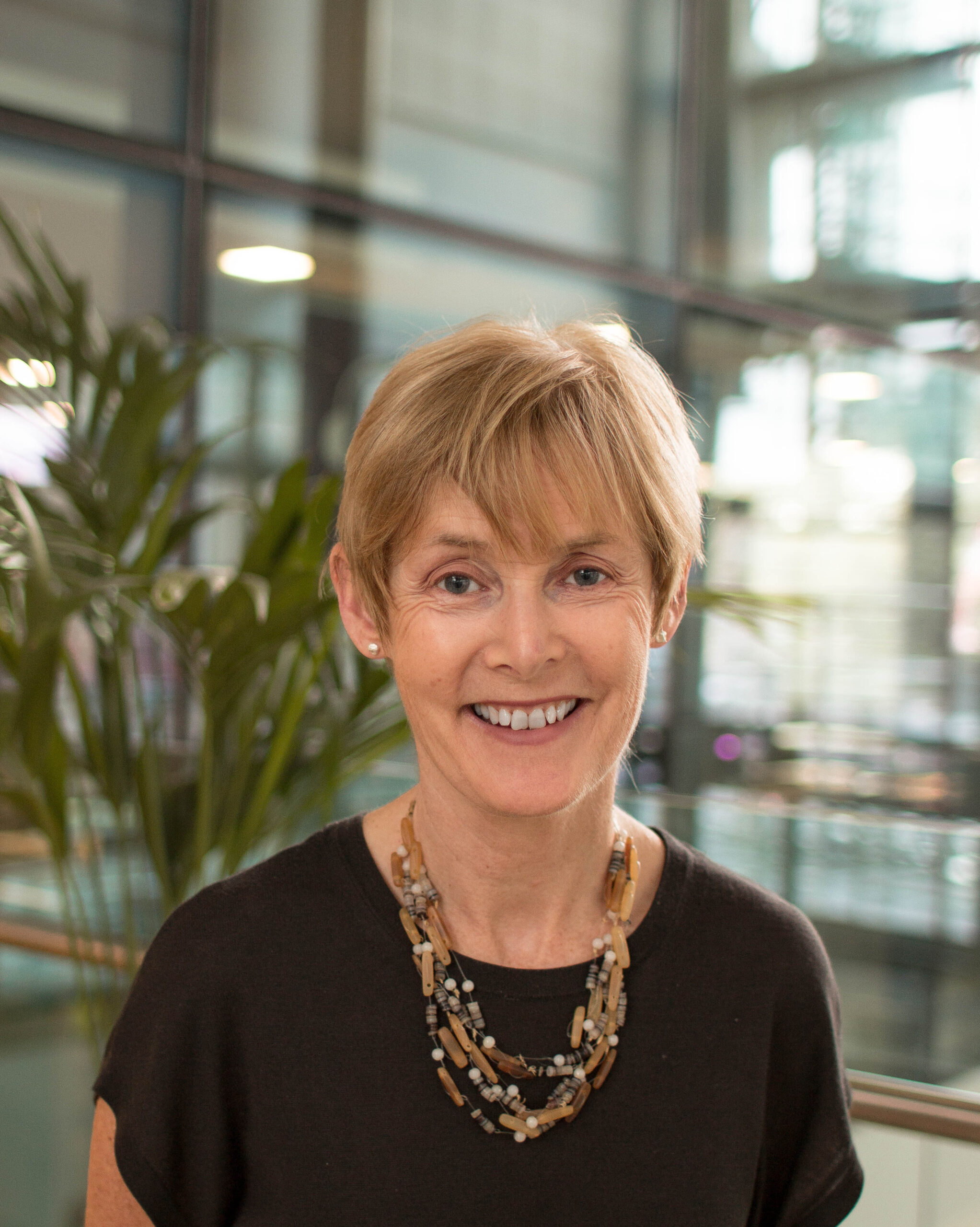To achieve full and equal access to and participation in science for women and girls, and further achieve gender equality and the empowerment of women and girls, the United Nations General Assembly declared 11 February as the International Day of Women and Girls in Science.
In celebration of International Day of Women and Girls in Science 11th February 2022, we asked PHSI colleagues Dr Ryc Aquino, Dr Paula Waterhouse and Prof Suzanne Moffat to answer some questions about their careers in science; memorable moments, role models and much more.
Dr Ryc Aquino
Research Fellow in Prevention, Early Intervention & Behaviour Change

How long have you been working in science/ research?
I’ve been in research for around nine years, which started during my MSc in Clinical and Health Psychology (Manchester). I was a volunteer research assistant for one of my lecturers, where we used existing datasets to explore the impact of insomnia on cognitive function, and undertook an evidence synthesis on the content of cognitive behavioural therapy for insomnia (CBT-I) interventions that have been tested in clinical trials. I did this alongside my dissertation, which explored midwives’ experiences of caring for Black, Asian and Minority Ethnic women during pregnancy. While these topics seem dissimilar, all were about understanding people’s health, and the healthcare/treatments that they receive.
I progressed to a PhD in Health Psychology (City, University of London), focusing on midwives’ and health visitors’ collaborative relationships when providing maternity care. Alongside, I held several part-time research assistant roles, harnessing the skills I gained. A week after I submitted my PhD thesis, I started my first postdoc at the Primary Care Unit (Cambridge). I evaluated a de-funded primary care-based clinical drug trial and led a process evaluation of a primary care-based cluster . Alongside, I was awarded a yearlong fellowship in primary care research (TUTOR-PHC, NIHR SPCR).
In April 2020, I joined the NIHR Applied Research Collaboration North East and North Cumbria as one of two fellows in Prevention, Early Intervention and Behaviour Change. I continue to be a Visiting Researcher in Cambridge.
What is the best thing about your research career, and the main challenges?
Personally, the best thing about a career in science/applied research is being able to contribute to generating knowledge that supports the improvement of healthcare services for everyone. Before Covid, I also really enjoyed travelling to meet and build relationships with the people we worked with – patients, service users, policymakers – which always left me inspired and reenergised.
In my opinion, one of the main challenges is the precarity of pursuing a research career pathway, which is a high-pressure, competitive environment as you need to demonstrate high levels of productivity consistently, to ensure you continue to be ‘employable’ from one contract to the next.
What five words sum up your typical day?
Every day brings different challenges!
Do you have a female role model that has influenced your decision to work in science?
I’m fortunate to have been mentored by brilliant women throughout my career. Specifically, Dr Debbie Smith and Professor Dawn Edge, my MSc supervisors who supported me in developing my own research ideas, and showed me that it is possible to pursue a career in science/research. Also, Professor Ros Bryar and Dr Ellinor Olander, my PhD supervisors, who pushed me to go beyond my comfort zone, to think critically and creatively, and to believe in myself.
I’ve also recently come to discover the inspiring stories of two female scientists. First, Dr Rosalind Franklin, who was a Cambridge-trained chemist, and played a crucial (but less-recognised) role in the discovery of the structure of the DNA through X-ray crystallography. Second, Dr Fe del Mundo, a renowned paediatrician in my home country, the Philippines, who was known for founding the first paediatric hospital in the country, as well as inventing an incubator made of bamboo, used in rural communities without electricity. A bit of personal trivia is that Dr del Mundo was my paediatrician when I was little! Both women were trailblazers, courageously navigating the challenges of a male-dominated industry. It is from them that I draw courage to continue my work and to support other women and underrepresented people in pursuing science/research careers.
Dr Paula Jane Waterhouse

Clinical Senior Lecturer and Honorary Consultant in Paediatric Dentistry
How long have you been working in science/ research?
I graduated as a dentist in 1990 and embarked on early clinical postgrad training, rotating through different specialties. In 1991, I was appointed to a junior lecturer post at Newcastle University (School of Dental Sciences). Between 1991 and 1993 I worked towards passing primary and second parts of my Fellowship in Dental Surgery at the Royal College of Surgeons Edinburgh alongside treating patients and teaching students. I was awarded the Dean’s Medal for highest marks in the examination. Once FDS RCS was under my belt, I started to think about Higher Specialist Training and a PhD.
In 1994, I got married, started my clinical and laboratory based part time, staff PhD, alongside part time clinical training and also teaching undergraduate dental students. My PhD was funded by the British Dental Association’s Shirley Glasstone-Hughes Memorial Prize. Serving so many ‘masters’ was challenging!
By October 2000 my first child was one year-old, I had successfully defended my PhD and also became eligible for NHS consultant posts in my own specialty. It took me a further seven years to be promoted to Clinical Senior Lecturer and finally take an Honorary Consultant post and by then I was also a Fellow of the Higher Education Academy (now Advance HE). My research interests, even though I am T and S contractually, include clinically relevant topics (such as dental trauma, enamel erosion and dental pulp), as a clinician I feel strongly that my research should eventually help patients! I was The School’s Research Student Advisor for 7 years.
Over the last 10 years I have become involved in education research including curriculum design, outreach placement, reflection, feedback, virtual learning and latterly decolonising the dental curriculum. I remain a Clinical Senior Lecturer, last year I received my 30 years long service award from the University and in 2020 I was awarded ‘Outstanding Contribution to Teaching, FMS’ at The Education Awards.
What five words sum up your typical day?
Varied, worthwhile, challenging, collaborating, mentoring
What is the funniest or most memorable thing that has happened to you while working in science?
Typing-up my PhD thesis one-handed whilst breastfeeding my firstborn
Who (or what) has motivated you throughout your research career?
My child patients, my students and their child patients; children in need of dental treatment deserve evidence-based dental care and my students deserve research-led teaching. My Mum knows how hard I worked to get a place at Dental School; she remains a huge support to this day.
Prof Suzanne Moffatt
Professor of Social Gerontology

How did you get into science/research?
I was a practicing NHS clinician (speech & language therapist) and saw the need for more research-based practice. This led me to undertaking a PhD and then I decided that I wanted to undertake a career in research.
How long have you been working in science/ research?
I started my post doc career in Feb 1990. I then worked as a fixed term contract research associate until 2008. Following this, was made a lecturer, then senior lecturer, reader and eventually in 2020, Professor. My career has been broadly as a social scientist in applied health research, but latterly specialised in ageing studies (social gerontology). In addition to research, I have always undertaken (and loved) teaching. I was Degree Programme director of the Masters in Public Health for 5-6 years, and since moving onto a permanent contract, I have supervised numerous PhD student. Being able to combine research and teaching has helped me throughout my career and I have learned tons of things from my students over the years.
What is it about your research career that gets you out of bed in the morning?
Never quite knowing what the day ahead will bring and working with colleagues who are generous, interesting, care about making a difference and like to get the (research) job done.
Who (or what) has motivated you throughout your research career?
Undertaking research in public health/medical sociology/social gerontology involves a focus on inequality and social justice. The motivation to identify and tackle inequalities is important, but equally important is to undertake research that can have an impact. So, I have always looked for opportunities to engage with groups/individuals outside of academia who can ‘translate’ findings in ways that make them accessible to individuals beyond the academy, such as the media, the voluntary and community sector and creative practitioners. I have learned a great deal from doing so.
What advice would you give a younger version of yourself?
Education is a lifelong process – if you feel like you want to undertake more studying yourself, it’s likely that you will find it incredibly rewarding. I did a Masters 11 years after completing my PhD and it was one of the best things I did in my post-doc career and opened up other ways of seeing the world and avenues of work. And … take coffee breaks, lunch breaks and have drinks after work with your colleagues.
What are the biggest challenges you have faced and how have you overcome them?
At a personal level, working for 18 years on short term/fixed term contracts was difficult and unsettling at times. I have to say, that at the end of my career, I find it very depressing that this trend has increased rather than decreased. In my view, the opportunities for contract researchers to obtain permanent positions, despite doing all the ‘right’ things, is harder than it was when I was in the same position. Honestly, the way I dealt with this issue was to work part time, but overwork and achieve probably more than would be expected within my contracted working hours. This is not something I would recommend to anyone else as a strategy, but I think it is something that the insecure working culture encourages, and indeed relies upon.